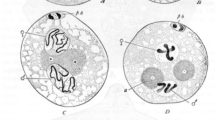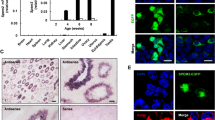Abstract.
The acquisition of a sexually dimorphic phenotype is a critical event in mammalian development. The basic underlying principle of sexual development is that genetic sex — determined at fertilization by the presence or absence of the Y chromosome — directs the embryonic gonads to differentiate into either testes or ovaries. Thereafter, hormones produced by the testes direct the developmental program that leads to male sexual differentiation. In the absence of testicular hormones, the female pathway of sexual differentiation occurs. Recent studies have defined key roles in gonadal development for two transcription factors: Wilms’ tumor suppressor 1 (WT1) and steroidogenic factor 1 (SF-1). After presenting a brief overview of gonadal development and sexual differentiation, this paper reviews the studies that led to the isolation and characterization of WT1 and SF-1, and then discusses how interactions between these two genes may mediate their key roles in a common developmental pathway.
Similar content being viewed by others
Author information
Authors and Affiliations
Rights and permissions
About this article
Cite this article
Parker, K., Schimmer, B. & Schedl, A. Genes essential for early events in gonadal development. CMLS, Cell. Mol. Life Sci. 55, 831–838 (1999). https://doi.org/10.1007/s000180050337
Issue Date:
DOI: https://doi.org/10.1007/s000180050337




